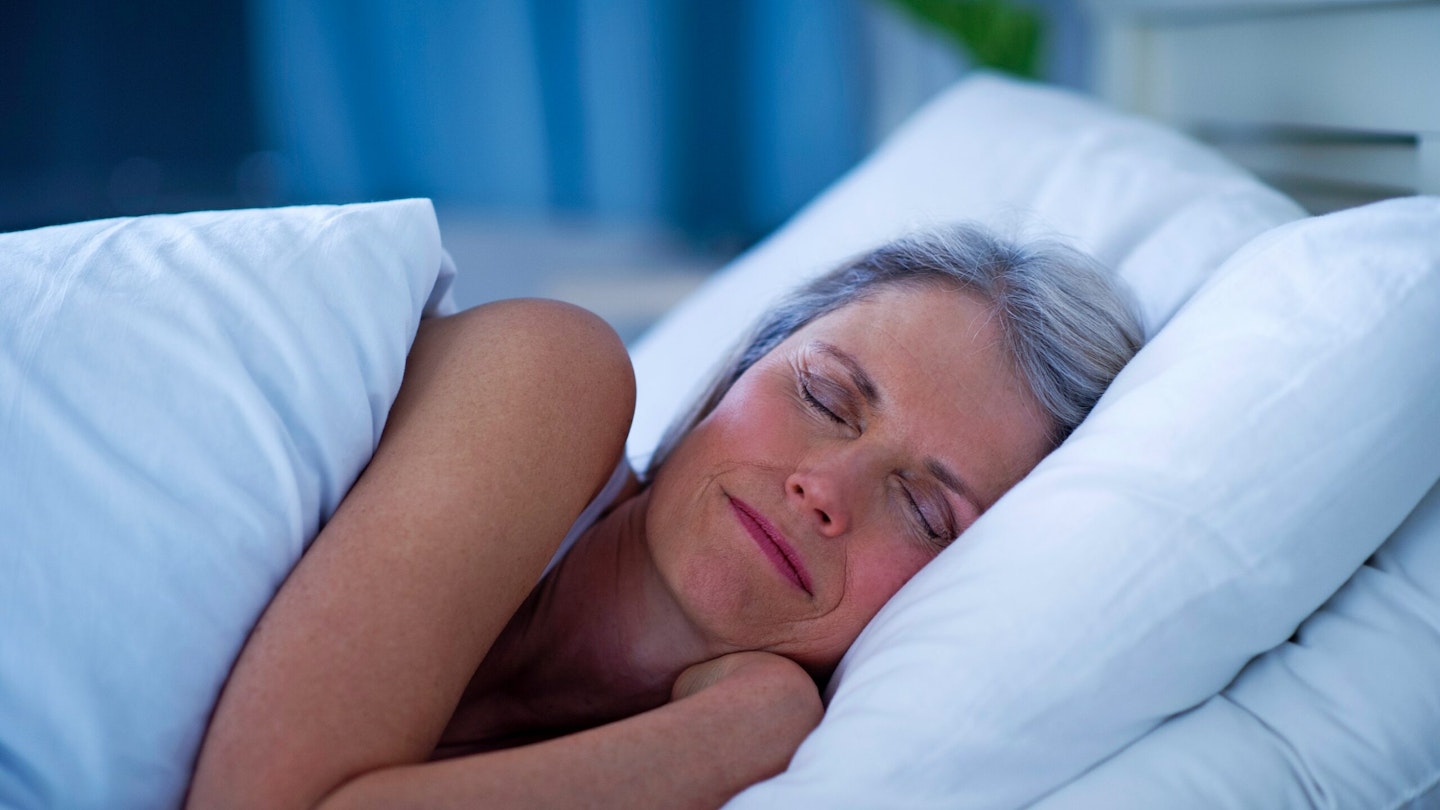Poor sleep is one of the most common problems in midlife. Here’s how to improve yours…
You nod off quickly but hours later you find yourself hot, stressed and staring up at the ceiling. At least you know you’re not alone — sleep problems are one of the most common symptoms of the perimenopause and menopause. In fact, 40 to 60 per cent of women report finding it difficult to stay asleep during this time in their life. But why?
Dr Neil Stanley, Director of Sleep Science at Sleepstation, a clinically validated sleep improvement programme, says: ‘Recent research has shown that the key reason women struggle to sleep during the menopause is due to temperature. To get a good night’s sleep, you need to lose one degree of your body temperature.
‘However, during the menopause, levels of oestrogen decline, leading to an increase in body temperature, hot flushes and night sweats, which can cause poorer quality sleep. ‘Unfortunately, many people, including women going through the menopause, just accept poor sleep as part of their life.’
The good news? Neil says: ‘By making the right changes, everyone can sleep better.’
Here, he explores how…
Temperature is key
Neil says: ‘Don’t do anything before bed that’s going to raise your body temperature, such as exercising, eating spicy food or drinking alcohol. Make sure your bedroom is between 16 to 18 degrees and open a window, no matter how cold it is outside. Wearing cotton, silk or linen instead of polyester can keep you cool too. When we’re worried about overheating, the temptation is to sleep naked, but actually this means the sweat stays on our skin, and we need the moisture to leave our skin to cool down.’
Reframe how you see sleep
‘To improve our sleep, we need to have a healthy mindset towards it,’ says Neil. ‘CBT-I (cognitive behavioural therapy for insomnia) has been proven to be one of the most effective treatments for insomnia by helping us to reframe our thoughts and behaviours around sleep. For example, if you wake up having a hot flush and tell yourself: I’ll never get back to sleep. I’m going to feel terrible tomorrow, you’re likely to get more worked up and not sleep. However, by thinking: Well, it’s 3am now, so whatever happens, thankfully I’ve already had a lot of sleep, you’re likely to feel more relaxed and go back to sleep anyway.’
Distract racing thoughts
Neil says: ‘Night sweats might wake you at night, but they might not be the thing that keeps you awake. How often do we lie there with our mind racing? The problem is when you stay in bed, you start to build an association with being awake in bed, which makes your body more likely to repeat this pattern the following night. Instead, if after 20 minutes you can’t sleep, get up and go and do something relaxing such as reading, knitting or listening to the radio. Then, when your eyes grow tired, get back into bed. That way you’ll start to find coping strategies for getting back to sleep, making those nightly wake-ups less daunting.’
Sort your sleep hygiene
‘As well as managing menopausal symptoms, good sleep hygiene is vital to getting a good night’s sleep,’ says Neil. ‘A fixed wake-up time, seven days a week, helps your body temperature naturally increase at the right time every day. A good evening routine is crucial too. Most people watch TV, clean their teeth and then flop into bed, expecting to sleep well.
But if we haven’t wound down properly, this is going to be difficult. We need to be mindful of the activities we’re doing 45 minutes before bed, ensuring that they are things that help relax our body and quieten our mind.’
HRT
Neil says: ‘Studies consistently show that HRT is associated with improved sleep for women who are experiencing hot flushes and sweats at night. Some women might notice that they can fall asleep quicker and have less wake-ups in the night when they’ve been on HRT for a few months.’
Don’t accept bad sleep
Neil says: ‘Many people accept poor sleep as part of their life, saying: “I’m just not a good sleeper”. But while the menopause can affect sleep, with the right support, anyone can get improved sleep. And a better night’s sleep will improve every corner of your life.’
Edited by Stephanie May
● For support and advice, visit sleepstation.org.uk

